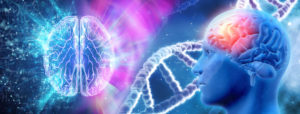Psychiatry
Comprehensive Medical and Psychiatric Evaluation
Medication Management of Depression and Treatment Resistant Depression
Bipolar Disorders and Psychotic Disorders
Anxiety Disorder, Panic Disorder, PTSD, Obsessive-compulsive Disorder, ADD, ADHD
We strongly recommend that the individual with both an addiction and mental health or emotional disorder seek treatment. Our program not only has psychiatrists and psychologists to work with the underlying emotional or mental disorders, we also treat the addiction and the mental illness simultaneously.
We can help you along this journey
We have specialized in addiction and dual diagnosis for years, so you can be sure that we’ll treat every aspect of your addiction. We will teach you all the tools necessary to overcome and heal your symptoms. In no time you’ll be forging the path towards a life beyond your wildest imagination.
Information on
Depression
Feeling sad or having the blues from time to time is a normal part of life and something that everyone occasionally feels. And sadness is a normal response to life’s ups and downs. But when that sadness does not pass within a day or two and turns to overwhelming emptiness with feelings of despair, it may be depression.
Causes of Depression
Depression is not just the result of a chemical imbalance in the brain. Experts believe that depression is likely the result of a combination of genetics, biochemical, and psychological, medical, environmental and social factors. Lifestyle choices, relationships, and coping skills can be equally as important as genetics. In addition, trauma, loss of a loved one, a difficult relationship, or any stressful situation may trigger a depressive episode. And certain risk factors can make a person more vulnerable to depression.
- Loneliness
- Lack of social support
- Recent stressful life experiences
- Family history of depression
- Marital or relationship problems
- Financial strain
- Early childhood trauma or abuse
- Alcohol or drug abuse
- Unemployment or underemployment
- Health problems or chronic pain
Symptoms of Depression
Depression is a common but serious illness, in that depression can be like an overwhelming feeling of doom that makes it hard to enjoy life. Depression often interferes with eating and sleeping, working and studying.
- Persistent sad, anxious or “empty” feelings
- Feelings of hopelessness
- Irritability, restlessness, anxiety
- Feelings of guilt, worthlessness and/or helplessness
- Loss of interest in activities or hobbies once pleasurable, including sex
- Fatigue and decreased energy
- Difficulty concentrating, remembering details and making decisions
- Insomnia, waking up during the night, or excessive sleeping
- Overeating, or loss of appetite
- Thoughts of suicide, suicide attempts
- Aches or pains, headaches, or digestive problems that don’t ease with treatment
Treatment of Depression
Many people with a depressive illness never seek treatment. But the vast majorities of people suffering with depression, even those with the most severe symptoms, can and do, get better with treatment. The first steps to getting appropriate treatment are to have a thorough physical examination and complete psychological evaluation by a qualified health professional. Once diagnosed, a person with depression can be treated with a number of methods. The most common treatments are medication and psychotherapy.
Effective treatment for depression often includes therapy. Therapy gives you skills, insights and tools to treat depression from a variety of angles. Therapy can also help you work through the root of your depression, helping you understand why you feel a certain way, what your triggers are for depression, and what you can do to stay healthy. Some types of therapy teach practical techniques on how to reframe negative thinking and employ behavioral skills in combating depression.
Two main types of psychotherapies – Cognitive Behavioral Therapy (CBT) and Interpersonal Therapy (IPT) – have been shown to be effective in treating Depression. By teaching new ways of thinking and behaving, CBT helps people change negative styles of thinking and behaving that may contribute to their depression. IPT helps people understand and work through troubled personal relationships that may cause their depression or make it worse.

Psychiatrist
Psychiatrists a Outpatient Detox
Many people with a depressive illness never seek treatment. But the vast majorities of people suffering with depression, even those with the most severe symptoms, can and do, get better with treatment. The first steps to getting appropriate treatment are to have a thorough physical examination and complete psychological evaluation by a qualified health professional. Once diagnosed, a person with depression can be treated with a number of methods. The most common treatments are medication and psychotherapy.
Effective treatment for depression often includes therapy. Therapy gives you skills, insights and tools to treat depression from a variety of angles. Therapy can also help you work through the root of your depression, helping you understand why you feel a certain way, what your triggers are for depression, and what you can do to stay healthy. Some types of therapy teach practical techniques on how to reframe negative thinking and employ behavioral skills in combating depression.
Two main types of psychotherapies – Cognitive Behavioral Therapy (CBT) and Interpersonal Therapy (IPT) – have been shown to be effective in treating Depression. By teaching new ways of thinking and behaving, CBT helps people change negative styles of thinking and behaving that may contribute to their depression. IPT helps people understand and work through troubled personal relationships that may cause their depression or make it worse.